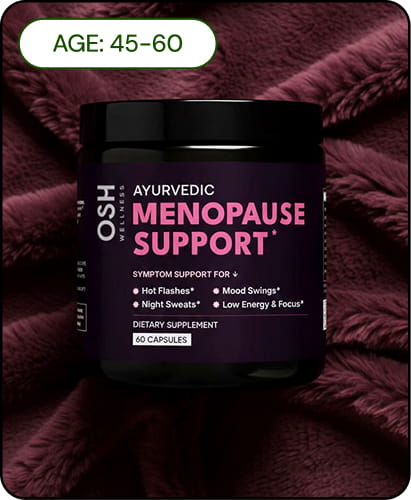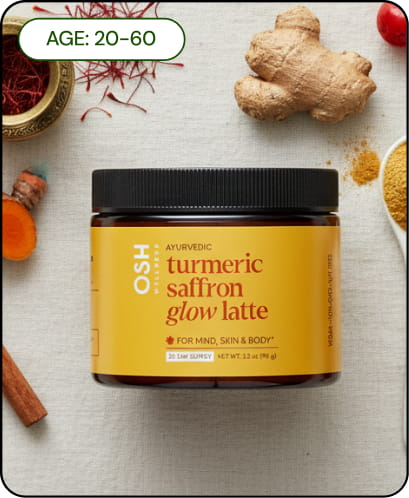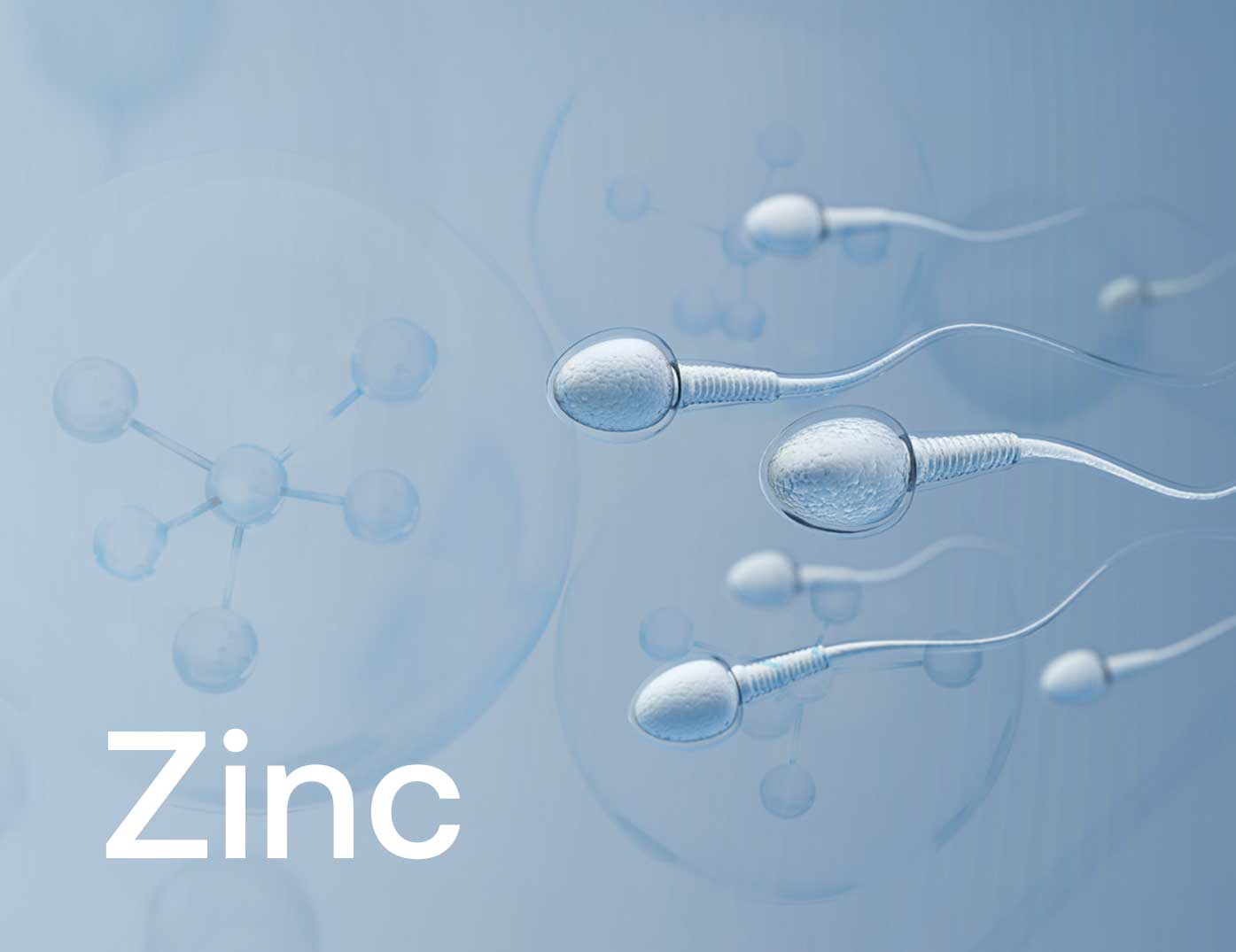Table of contents
Zinc is an essential mineral vital for numerous physiological processes, particularly male fertility . As reproductive health concerns rise among men aged 30–55, understanding zinc's roles in improving sperm quality, regulating testosterone levels, and combating oxidative stress becomes increasingly important. This article explores the latest research, practical supplementation strategies, and lifestyle tips surrounding zinc to help men enhance reproductive vitality and address infertility challenges.
Understanding Zinc’s Role in Male Fertility

Zinc is a critical trace element that influences multiple aspects of male reproductive wellness, including:
Sperm development and maturation
Sperm morphology (shape)
Motility (movement)
Men aged 30–55 are especially susceptible to decreased zinc levels, which can negatively impact these vital processes. Zinc acts as a master regulator in sperm maturation by interacting with specialized proteins and modulating key processes necessary for fertilization. Research shows that zinc therapy improves sperm quality by increasing sperm density and boosting progressive motility [1].
Zinc also enhances sperm morphology by reducing the percentage of defective sperm while supporting structural maturation. Animal studies have found that supplementing with zinc improves viability, motility and reduces oxidative stress [2]. In human studies, zinc helps maintain sperm in a non-capacitated state, which is essential for preparing for fertilization [3].
Additionally, zinc plays a vital role in testosterone production. Adequate levels help maintain or elevate testosterone. Conversely, deficiency may result in decreased testosterone, impaired spermatogenesis, and diminished fertility [4]. Zinc also exhibits powerful antioxidant effects, protecting sperm against oxidative damage, which is essential for maintaining DNA integrity and viability.
Bottom line: Maintaining optimal zinc levels, whether through diet or supplementation, is vital to support healthy sperm function and hormone regulation in men, particularly as they age.
Consequences of Zinc Deficiency on Fertility

A lack of zinc can negatively impact several crucial aspects of male fertility, including:
Semen quality : Deficiency leads to reduced sperm count and poor spermatogenesis [5]
Sperm motility and morphology : Poor movement and abnormal shapes impair fertilization chances [6]
Hormonal imbalance: Zinc deficiency may lead to low testosterone and hypogonadism, affecting libido and sexual function [7]
Oxidative stress: Increased DNA fragmentation and cell death due to weakened antioxidant defenses [2]
Addressing zinc deficiency through diet or supplements is essential. Restoring zinc levels has been shown to improve sperm count, motility, and reproductive function, making it a key intervention strategy for men facing infertility challenges.
Research Insights on Zinc and Sperm Parameters

Extensive research supports the positive effects of zinc supplementation on male fertility. Several studies and meta-analyses report:
Lower seminal zinc levels in infertile versus fertile men [8]
Significant improvements in semen volume post-zinc supplementation [9]
Enhanced sperm motility, especially helpful for those with asthenozoospermia (reduced motility) [7]
Improved sperm morphology and reduced DNA fragmentation [10]
Takeaway: While overall findings strongly favor correlation between Zinc and male fertility, and zinc’s role in improving sperm health, identifying the most effective forms and dosages requires additional study.
Optimal Zinc Sources: Supplements and Diet

Selecting the best sources of zinc, both supplemental and dietary , is critical for maximizing fertility benefits. Among supplements, the most bioavailable forms include:
Zinc bisglycinate : Highly absorbable and effective for hormonal balance and sperm support
Zinc citrate : Gentle on digestion and well absorbed
Dietary sources are equally important. Excellent options include:
Oysters, shellfish, red meat, dairy, and poultry [13]
Plant-based sources: legumes, whole grains, nuts, and seeds, though absorption may be lower due to phytates
To enhance zinc uptake from plant-based sources, pair them with vitamin C-rich foods or use soaking/sprouting methods to improve absorption. Most adult men require around 11 mg per day, but dosage may vary with individual needs. Consulting a healthcare provider before exceeding the RDA is advised to avoid toxicity [14].
Integrating Zinc into a Fertility-Supportive Lifestyle

Zinc benefits are amplified when combined with smart lifestyle habits. Incorporating zinc into a well-rounded lifestyle includes:
Zinc-rich foods : pumpkin seeds, legumes, lean meats, seafood (especially oysters), and dairy [15]
Limiting alcohol and tobacco : Both impair testosterone levels and sperm quality [16]
Combining zinc with co-nutrients like selenium and folic acid for enhanced fertility support [17]
Improving absorption for vegetarians/vegans by soaking or sprouting legumes
Monitoring zinc levels with a healthcare professional is important, especially when planning conception. Symptoms of deficiency - like lowered immunity or diminished libido - could signal the need for dietary adjustments [18].
Key insight: A balanced approach pairing proper nutrition , supplementation, and lifestyle adjustments fosters optimal reproductive outcomes.
Relevant Products

Osh Wellness Men's Fertility Support is a targeted supplement designed to promote male reproductive health. It includes bioavailable zinc among other key nutrients to support testosterone levels and improve sperm metrics.
Conclusions

Zinc is pivotal in male reproductive health, influencing sperm quality, testosterone balance, and oxidative stress defense. Ensuring adequate zinc intake through diet, appropriate supplementation, and lifestyle changes can significantly enhance reproductive outcomes in men, particularly those aged 30-55. Taking proactive measures now can lead to better chances of successful conception and improved long-term health.
FAQs
How can zinc improve sperm quality?
Zinc supports sperm motility and morphology, both essential for successful fertilization.
What are the symptoms of zinc deficiency?
Common signs include increased fatigue, poor immune response, reduced libido, and fertility challenges.
Can too much zinc be harmful?
Yes. Over-supplementation may lead to toxicity symptoms such as nausea, digestive distress, and impaired copper absorption.
Sources
1: PMC - The Role of Zinc in Male Reproductive Health
2: Frontiers in Veterinary Science - Zinc: A Key Regulator of Sperm Functions
3: University of Missouri - Zinc's Role in Sperm Functions
4: ScienceDirect - Impact of Zinc Supplementation on Male Fertility
5: PubMed - Zinc Deficiency and Male Fertility
6: MDPI - Effects of Zinc on Sperm Quality
7: ScienceDirect - Zinc and Male Hormonal Balance
8: PubMed - Zinc Levels in Infertile Males
9: Wiley - The Role of Zinc in Male Fertility
10: PMC - Zinc’s Influence on Sperm Parameters
11: JAMA - Study on Zinc Supplementation and Fertility
12: CNY Fertility - Zinc and Sperm Health
13: PubMed Central - Zinc and Male Fertility
14: Conceive Plus - The Best Zinc Supplement for Men
15: NIH - Dietary Zinc and Reproductive Health
16: NIH - Impact of Zinc on Men's Fertility
17: Conceive Plus - Zinc and Fertility
18: Pregatips - Zinc for Female Fertility Benefits







